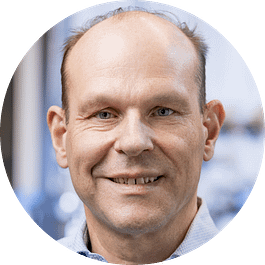


Our PhD student Konrad Koschnick is portrayed in the MEET THE MAKERS format of Hessen Schafft Wissen. In his doctoral thesis, Konrad is focussing on the development of laser measurement techniques that are specially designed for sustainable energy conversion processes. The aim is to use innovative measurement methods and instruments to increase the efficiency of future energy storage systems, e.g. in the catalytic production of chemical base materials. He is particularly fascinated by the combination of optics, which has close parallels to photography, chemistry, which controls the process, and the design of his own test benches - a key topic in mechanical engineering.
Postdoctoral researcher Alison Ferris from Princeton University spent a year researching sustainable catalytic processes and Raman spectroscopy together with doctoral student Konrad Koschnick in the ODEE laboratory at Darmstadt University of Applied Sciences. The full interview is published in h_da's Impact Magazine.
Dirk Geyer answers questions from Maurice, the science reporter from Hessen schafft Wissen, on the topic: "What can your science do for my future?". Dirk Geyer explains how we can achieve the energy transition with iron powder as a new type of energy storage system.

Prof. Dr.-Ing. Dirk Geyer
For news and updates, follow us on:
Our PhD student Konrad Koschnick is portrayed in the MEET THE MAKERS format of Hessen Schafft Wissen. In his doctoral thesis, Konrad is focussing on the development of laser measurement techniques that are specially designed for sustainable energy conversion processes. The aim is to use innovative measurement methods and instruments to increase the efficiency of future energy storage systems, e.g. in the catalytic production of chemical base materials. He is particularly fascinated by the combination of optics, which has close parallels to photography, chemistry, which controls the process, and the design of his own test benches - a key topic in mechanical engineering.
Postdoctoral researcher Alison Ferris from Princeton University spent a year researching sustainable catalytic processes and Raman spectroscopy together with doctoral student Konrad Koschnick in the ODEE laboratory at Darmstadt University of Applied Sciences. The full interview is published in h_da's Impact Magazine.
Dirk Geyer answers questions from Maurice, the science reporter from Hessen schafft Wissen, on the topic: "What can your science do for my future?". Dirk Geyer explains how we can achieve the energy transition with iron powder as a new type of energy storage system.

Prof. Dr.-Ing. Dirk Geyer
